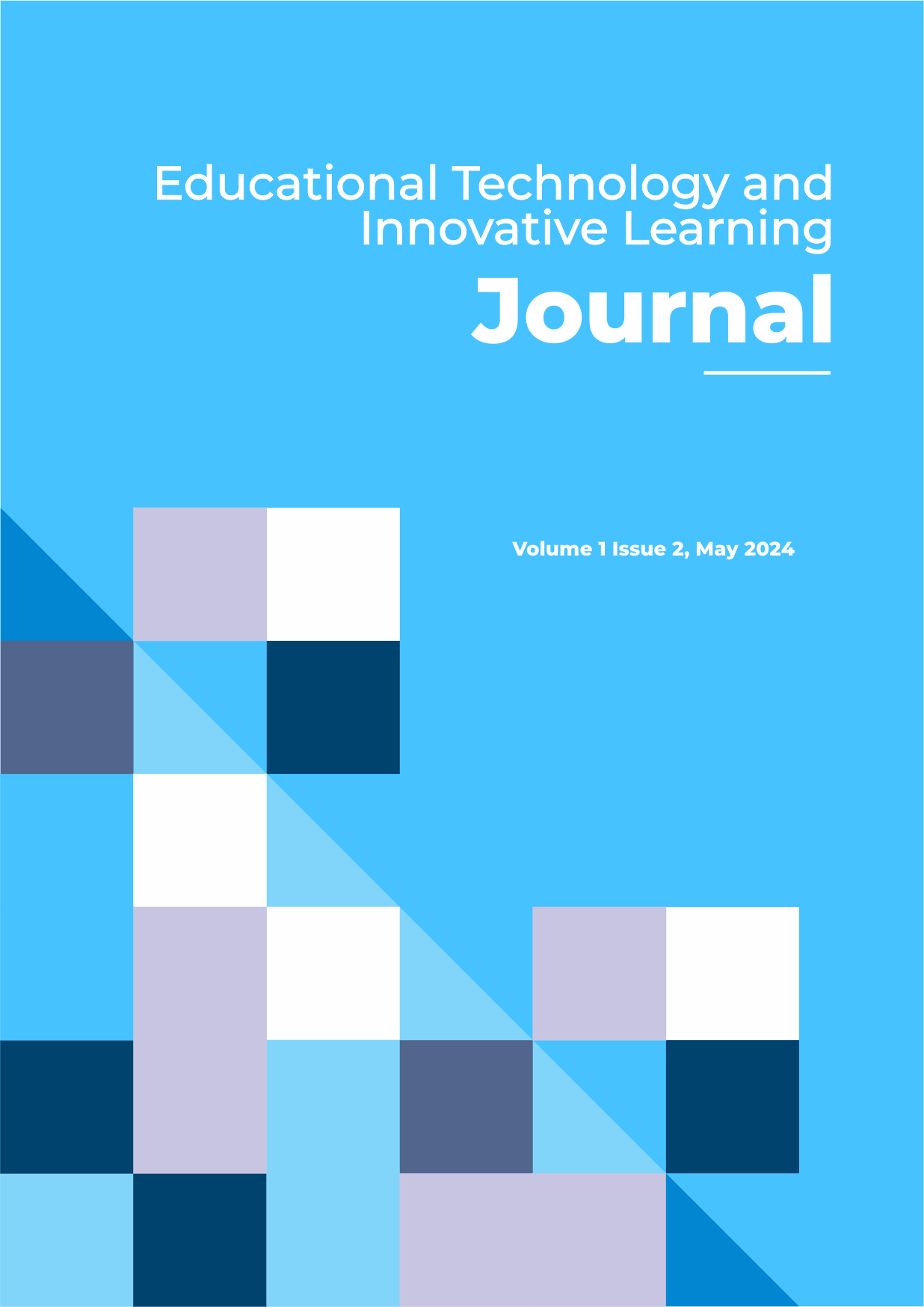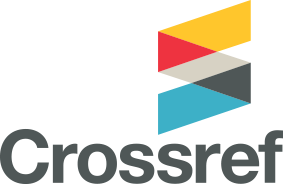THE IMPORTANCE OF INNOVATION IN IMPROVING THE QUALITY OF EDUCATION IN INDONESIA
DOI:
https://doi.org/10.47178/mshsqm91Keywords:
Tuah Tampah Dance, Educational Value, Character EducationAbstract
Various educational problems that arise and are not resolved in Indonesian education are one of the factors causing
the low quality of education in Indonesia. The world of education requires innovation to continue to develop and be
able to keep up with the development of other fields. This research uses a descriptive qualitative method of literature
review. Based on this research, teachers must be able to provide innovation to students, so that students are
increasingly motivated in learning. In addition, learning today can utilize technology so that the use of students'
senses can be done thoroughly, learning can accommodate a variety of student learning abilities so that learning
outcomes will also increase. Educational innovation must also be seen as a renewal that involves wider students,
including the role of the government
References
Ariandini, N., & Ramly, R. A. (2023). Penggunaan Multimedia Pembelajaran Interaktif Dalam Meningkatkan Hasil Belajar Siswa. Jurnal Kependidikan Media, 12(2), 107-116.
Arizaldy, R., & Alfadil, M. T. (2021). The influence of the application of power point learning media on ict learning outcomes. Jurnal Galeri Pendidikan, 1(01), 479.
Blândul, V. C. (2015). Inovation in Education – Fundamental Request of Knowledge Society. Procedia - Social and Behavioral Sciences, 180(November 2014), 484–488. https://doi.org/10.1016/j.sbspro.2015.02.148
Chehade, M. J., Yadav, L., Kopansky-Giles, D., Merolli, M., Palmer, E., Jayatilaka, A., & Slater, H. (2020). Innovations to improve access to musculoskeletal care. Best Practice and Research: Clinical Rheumatology, 34(5), 101559. https://doi.org/10.1016/j.berh.2020.101559
Darmawati, A., Marwan, M., Suhenrik, P., Ramly, R. A., & Salam, S. (2023). Adaptive Learning in the Independent Curriculum: Integration of Behavioristic, Cognitive and Constructivist Theories in Educational Technology. International Journal of Education, Vocational and Social Science, 2(04), 255-265.
Efendi, N. M. (2019). Revolusi Pembelajaran Berbasis Digital (Penggunaan Animasi Digital Pada Start Up Sebagai Metode Pembelajaran Siswa Belajar Aktif). Habitus: Jurnal Pendidikan, Sosiologi, & Antropologi, 2(2), 173. https://doi.org/10.20961/habitus.v2i2.28788
Fauzan, R .2019. Pemanfaatan Gami Fiction Kahoot.IT Sebagai Enrichment Kemampuan Berfikir Historis Mahasiswa Pada Mata Kuliah Sejarah Kolonialisme Indonesia. Prosiding Seminar Nasional Pendidikan FKIP. 2(1):254-262
Juraschek, M., Büth, L., Martin, N., Pulst, S., Thiede, S., & Herrmann, C. (2020). Event-based education and innovation in Learning Factories - Concept and evaluation from Hackathon to GameJam. Procedia Manufacturing, 45(2019), 43–48. https://doi.org/10.1016/j.promfg.2020.04.057
Kadi, T., & Awwaliyah, R. (2017). Inovasi Pendidikan: Upaya Penyelesaian Problematika Pendidikan di Indonesia. Jurnal Islam Nusantara, 1(2), 144–155 https://doi.org/10.33852/jurnalin.v1i2.32
Kurniawati, F. N. A. 2022. Meninjau Permasalahan Rendahnya Kualitas Pendidikan di Indonesia dan Solusi. Academi of Educational Journal.
Noer, R. Z., Mustopa, D., Ramly, R. A., Nursalim, M., & Arianto, F. (2023). Landasan Fılosofıs Dan Analısıs Teorı Belajar Dalam Implementası Kurıkulum Merdeka Dı Sekolah Dasar. Jurnal Elementaria Edukasia, 6(4), 1559-1569.
OECD. (2016). Innovating Education and Educating for Innovation. https://doi.org/10.1787/9789264265097-en
Pratama, M. P., Sampelolo, R., & Tulak, T. (2023). Mengembangkan Materi Pembelajaran Interaktif dengan Canva Untuk Pendidikan Di SMP. RESONA: Jurnal Ilmiah Pengabdian Masyarakat, 7(2), 290-297.
Pratama, I. G., Hanif, M., Ramly, R. A., & Khotimah, D. K. (2023, July). Pengembangan media belajar pjok berbasis aplikasi smart learning di masa pandemi. In SIPTEK: Seminar Nasional Inovasi Dan Pengembangan Teknologi Pendidikan (Vol. 1, No. 1).
Ramly, R. A. (2021). Penerapan Komunitas Belajar Melalui Aplikasi WhatsApp sebagai upaya Meningkatkan Aktivitas Belajar Sejarah. Biormatika: Jurnal ilmiah fakultas keguruan dan ilmu pendidikan, 7(2), 147-159.
Ramly, R. A., & Ayu, S. (2022). Pengaruh Media Sosial Terhadap Hasil Belajar Siswa. Jurnal Kependidikan Media, 11(3), 107-119.
Ramly, R. A., & Ilham, I. (2022). Penggunaan Quipper School Terhadap Hasil Belajar Siswa Smp Negeri 2 Campalagian Polewali Mandar. Jurnal Kependidikan Media, 11(2), 65-74.
Surani, D., Gymmayil, O. A., & Mangkurat, U. L. (2019). Studi Literatur: Peran Teknologi Pendidikan dalam Pendidikan 4.0. Prosiding Seminar Nasional Pendidikan FKIP, 2(1), 456–469.
Suryadi, A. (2007). Pemanfaatan ICT dalam Pembelajaran. Pendidikan Terbuka Dan Jarak Jauh, 8(1),
Syafaruddin, Asrul, Mesiono, P. (2012). Inovasi Pendidikan (Issue 9).
Tekege, M. (2017). Pemanfaatan teknologi informasi dan komunikasi dalam pembelajaran SMA YPPGI Nabire. Jurnal Teknologi dan Rekayasa, 2(1), 40–52. https://uswim.ejournal.id/fateksa/article/view/38
Tumba, M., & Pratama, M. P. (2024). PENGARUH SISTEM PEMBELAJARAN BERBASIS PROYEK PADA KINERJA SISWA SMP. INDONESIAN JOURNAL OF EDUCATIONAL TECHNOLOGY, 3(1), 18-25.









